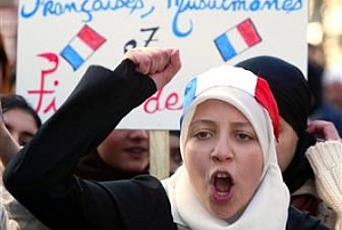
The Contradictions of French Secularism
By Joan Wallach Scott, Professor Emerita in the School of Social Science:
"The recent terrorist attacks in France aroused what has become a predictable counter-attack by French politicians: the condemnation of Muslims as – in the words of the interior minister Gérald Darmanin – 'an enemy within', unwilling or incapable of living according to the 'values of the republic'. In the aftermath of the killings, which occurred in Paris on 16 October and in Nice on 29 October, politicians and commentators from the right to the far right have called for a more assertive defence of laïcité, a primary principle of the republic, and have condemned those who speak on behalf of France’s Muslim population. Prominent conservatives, including Xavier Bertrand, have even argued that laïcité should be added to the sacred republican trinity, 'Liberté, Egalité, Fraternité'.
...
Laïcité is the French word for secularism that, in its original definition, refers to the separation of church and state and to state neutrality in matters of religion; but in recent years it has become a more potent rhetorical weapon in the state’s political arsenal. Enshrined in a 1905 law aimed at protecting democracy by constraining the influence of the Catholic church, laïcité has over the last two decades been repurposed to deal primarily with adherents of Islam, the religion of former colonial subjects many of whom are now French citizens."
Read more at New Statesman.


